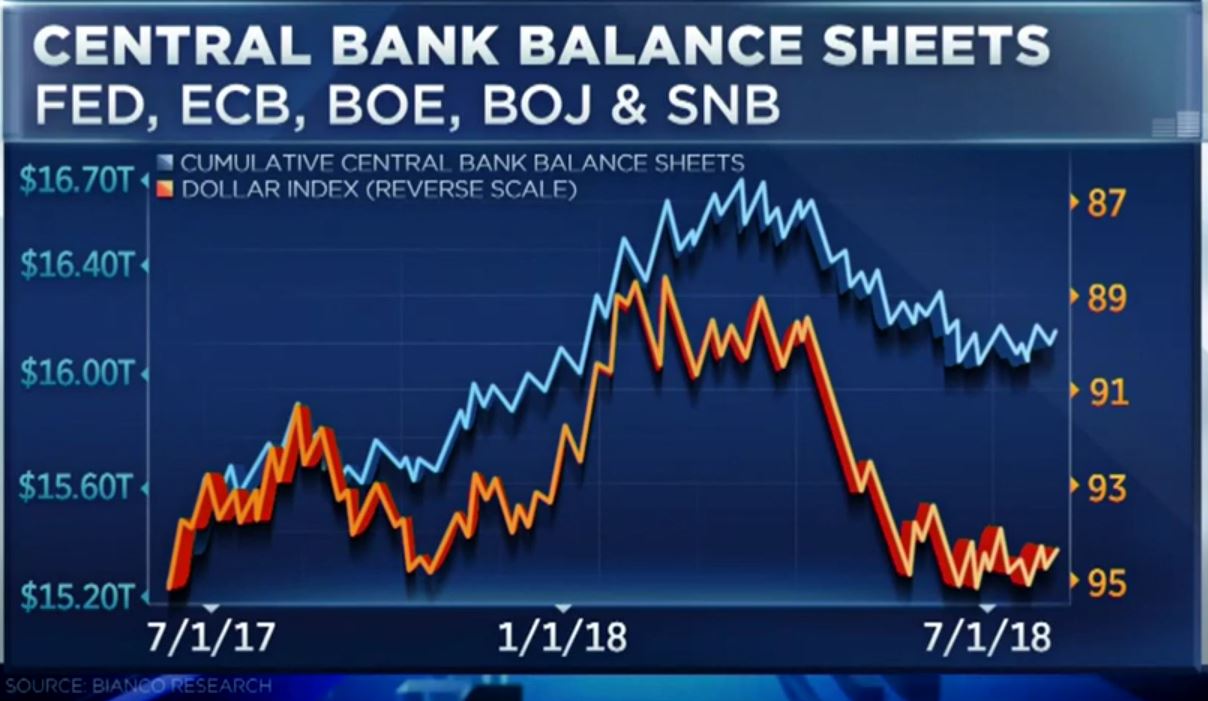Submitted by Taps Coogan on the 1st of August 2018 to The Sounding Line.
Enjoy The Sounding Line? Click here to subscribe for free.
CNBC’s Rick Santelli recently spoke with Bianco Research President Jim Bianco about global central bank balance sheets and the increasingly massive profits banks are generating due to the Fed’s decision to pay banks interest on their excess reserves.
Santelli Exchange: Central bank balance sheets from CNBC.
Referencing the following chart, Jim Bianco notes:
“So you take all of the central bank balance sheets, convert them to dollars, and add them up. I got the idea from you (Rick Santelli). Your famous line that all central bank stimulus is fungible. So let’s add them all together. But because I convert them to dollars I show the dollar index on (the chart) too. So the decline that we have had (in central bank balance sheets) is because the dollar strengthened and that would reduce the amount of conversions that you have. If you strip out the dollar effects, there has been no decline in central bank balance sheets. World-wide central bank stimulus, even though the Fed has been pulling back, is not down because the ECB and the Bank of Japan continue to stimulate to more than offset it.”
Jim Bianco further notes on interest on excess reserves:
“If we get two more rate hikes this year, as everybody expects, next year nearly 20% of bank profits will be interest on excess reserves paid by the Federal Reserve to the banks and that could potentially become a big political issue. Why are we giving them this giant subsidy?”
As we have noted on several occasions, the Federal Reserve’s decision in the wake of the 2008 financial crisis to simultaneously inject banks with trillion of dollars and begin paying them interest on their excess reserves has been a massive boon for banks, doubly so since the Fed began raising interest rates. Because the Fed forfeits its profits after expenses to the US Federal Government, the mounting interest on excess reserve payments that the Fed makes to banks is money that they would otherwise hand over to the federal government. Ultimately, taxpayers will fill the gap to the tune of tens of billions of dollars.
There is more to the interview, so enjoy it above.
P.S. If you would like to be updated via email when we post a new article, please click here. It’s free and we won’t send any promotional materials.
Would you like to be notified when we publish a new article on The Sounding Line? Click here to subscribe for free.


